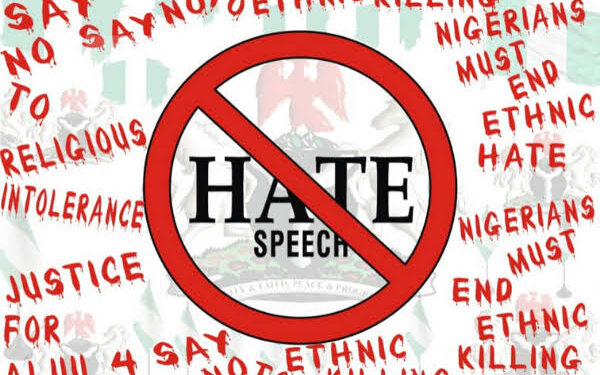Today, the most valid test of the degree of ethnic disrespect and hatred in Nigeria are the comments on social media spaces like Facebook, Instagram and X, formerly known as Twitter. While the original inventors of these applications may have ingeniously intended to bridge the communication gaps between individuals, Nigerian citizens have over the years, turned these spaces to arenas for voicing their disdain for tribes, other than theirs, further widening the gulf of unity amongst the citizens.
While it is recognisable that the Nigerian nation, has been having issues of ethnic mistrust, fundamentally entrenched by the colonial government and successive nepotistic governments, it has become pervasive with the advent and popularity of social media in the past couple of years. In today’s Nigeria, it is so easy to understand how someone will react to government policies by mere looking at the person’s name in the comment section of a post.
This has been breeding a culture of hatred so much, that many citizens are wont to support misdemeanours, standing on the illusion of tribal sentiments. It is growingly worrisome now that the younger generation of Nigerians, who are more active on social media are gradually building this unpatriotic and unprogressive culture that has bedeviled the country.
Instances touching on this ugly trend exist. When news broke a few months ago about Udoka Golden Point Hotel in Anambra, being not only a den of criminals but also littered with graves of victims (which has been denied by the hotel’s management), it formed a talking-point online, orchestrating invectives amongst ethnic groups in Nigeria. It provided the premise for other ethnic nationalities to chastise the Igbos. despite the fact that evil and good deeds are not determined by geography.
Our leaders have not been helpful in this respect considering the danger the ugly trend portends. Some of them, despite repeated trips to Rwanda, a country that was devastated by ethnic hatred, use words that further divide Nigerians, suggesting that nothing has been learnt from the experiences of that African country. This comes to the fore during elections, when people in leadership positions, by proxy, through paid influencers keep drawing malicious inferences, to pitch tribes against one another, all in the name of depleting the political credit of perceived political opponents.
This has only left Nigerians chasing one another rather than their leaders, who have been making life unbearable for them with their actions and inactions.
The enforcement of the Cybercrimes (Prohibition, Prevention, etc.) Act, 2015 is a proof that the leaders are only interested in what affects them. Rather than this law being enhanced to take care of those fermenting ethnic hatred on social media, the law seems to be effective only when people in exalted offices or their allies are criticised on social media platforms under a bogus classification, criminal defamation, which is regularly being invoked to suppress free speech in Nigeria. A country that prides itself as democratic is fast losing the ethos of freedom associated with democracy as people get intimidated into quietude.
Of course, the onus lies on the National Assembly to urgently enhance the law to take care of national unity, constantly being eroded by the conduct of some social media users.
























